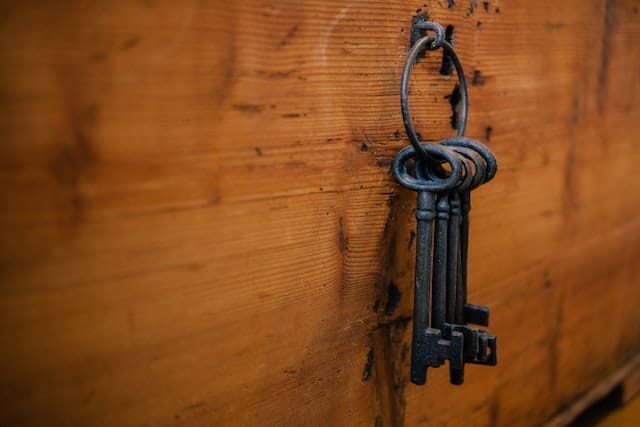Locks have been one of the world’s oldest occupations. Throughout history, locks have developed to keep our property safe, and the industry keeps up with the advancement of each generation. In this article, we will look at the history of locksmithing and its evolution into the industry it is today.
The Origin of Locksmiths
The history of locksmithing is believed to go back to the ancient Egyptian era, 4000 years ago. While locks could be older, the term “locksmith” was used sometime after, combining the words lock and smith from Old English and referring to some that worked with metal to produce locks.
Keys and locks are mentioned in the Old Testament in the book of judges, which means locksmithing existed even in 110. Moreover, tumbler locks existed in Egypt, Iraq, and Greece in 1000 BCE.
The first ever locks were made from wood, but the history of locksmithing evolved to make locks out of metal. Traditionally, these locks were used by merchants to safeguard their merchandise while traveling for trade. Older locks were large and clunky and often involved pins in the lock cavity. To unlock it, merchants would require large keys.
Some of the oldest wooden locks were found in the Assyrian Empire, believed to be created around 704 BC. However, these inventions would soon travel the world and evolve at incredible rates.
An Evolution Towards Metal
It wasn’t until 900 AD in England that wooden locks were found to be inadequate and much too easy to break and unlock. Known for their metal crafting, the English sought to make locks out of iron and brass, which soon spread across Europe and China.
These locks were more complex than the wooden locks of the Egyptian era. Instead of inserting the key and pushing the pins up, these locks required the key to be pushed and turned. As some craftsmen became more invested in creating new and improved locks, the history of locksmithing moved towards professional locksmiths who crafted metal locks.
The Medieval history of locksmithing
As metal locks spread around the globe and locksmithing became an established profession, the middle ages saw an explosive acceleration in locksmithing. Moving away from the functioning of the locks themselves, locksmiths put their focus on designing them.
Nobles and Royals would invite locksmiths to create personalized locks, often marked with the insignia of the Royal Crest or the Noble House. Such locks were seen in medieval art, where paintings showed padlocks and nobles holding keys. Even records believed to be written in the 14th century described the purchase of such locks and keys.
The History of Locksmithing: Towards the Modern Lock
While the design of locks continued to change throughout the centuries, there was seldom any significant improvement in their functioning. However, the 18th century saw an improvement in these locks to produce the modern locks we see today.
The industrial revolution brought new manufacturing methods that could be used to make precise structures for locks. This invigorated innovation, and improvements in the security of the locks started to emerge.
During this time, famous locksmith names such as Linus Yale began to emerge. Now, these locks moved from being used for storage and treasure rooms to being used for home security. Moreover, better materials and modern techniques allowed locksmiths to make smaller pins and improve the lock’s durability.
Different shapes of pins started to become common in the market, each varying in complexity. The 18th and 19th centuries saw the most significant evolution in the history of locksmithing, which has now moved towards information technology and smart locks.
Final Thoughts
The history of locksmiths spans thousands of years, with locks used to secure homes and businesses as far back as ancient Egypt. The profession of locksmithing has evolved significantly over time, with locks becoming increasingly sophisticated and secure. Today, modern locksmiths have access to all the latest technology, making it easier to keep your property safe and secure. If you need a locksmith, then locksmithslocator.com will help you to find one with the latest technology near you quickly and easily.
Featured Photo by Silas Köhler on Unsplash




